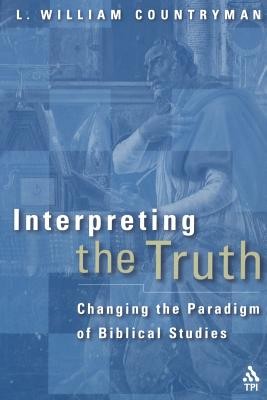
- We will send in 10–14 business days.
- Author: Louis William Countryman
- Publisher: Bloomsbury Publishing PLC
- Year: 2003
- Pages: 256
- ISBN-10: 1563384108
- ISBN-13: 9781563384103
- Format: 15.3 x 22.9 x 1.6 cm, softcover
- Language: English
- SAVE -10% with code: EXTRA
Reviews
Description
In order to refocus their work so that it can open out into a three-way conversation between themselves, the scriptural text, and the communities interested in the text, Countryman argues that biblical scholars must abandon the over-dependence on analytical method that they favor. Scholars need to find new ways to bring the complexities of the text and its environment more directly into conversation with the complexities of human communities here and now. Countryman strikes out in new directions by stressing that the conversation with Scripture always calls the interpreter and the community of faith to address realities beyond the text. This book offers a challenge both to biblical scholars and to churches, calling them to work together in reforming and renewing their ways of dealing with Scripture.
L. William Countryman is Sherman E. Johnson Professor in Biblical Studies at the Church Divinity School of the Pacific.
EXTRA 10 % discount with code: EXTRA
The promotion ends in 20d.07:55:12
The discount code is valid when purchasing from 10 €. Discounts do not stack.
- Author: Louis William Countryman
- Publisher: Bloomsbury Publishing PLC
- Year: 2003
- Pages: 256
- ISBN-10: 1563384108
- ISBN-13: 9781563384103
- Format: 15.3 x 22.9 x 1.6 cm, softcover
- Language: English English
In order to refocus their work so that it can open out into a three-way conversation between themselves, the scriptural text, and the communities interested in the text, Countryman argues that biblical scholars must abandon the over-dependence on analytical method that they favor. Scholars need to find new ways to bring the complexities of the text and its environment more directly into conversation with the complexities of human communities here and now. Countryman strikes out in new directions by stressing that the conversation with Scripture always calls the interpreter and the community of faith to address realities beyond the text. This book offers a challenge both to biblical scholars and to churches, calling them to work together in reforming and renewing their ways of dealing with Scripture.
L. William Countryman is Sherman E. Johnson Professor in Biblical Studies at the Church Divinity School of the Pacific.


Reviews